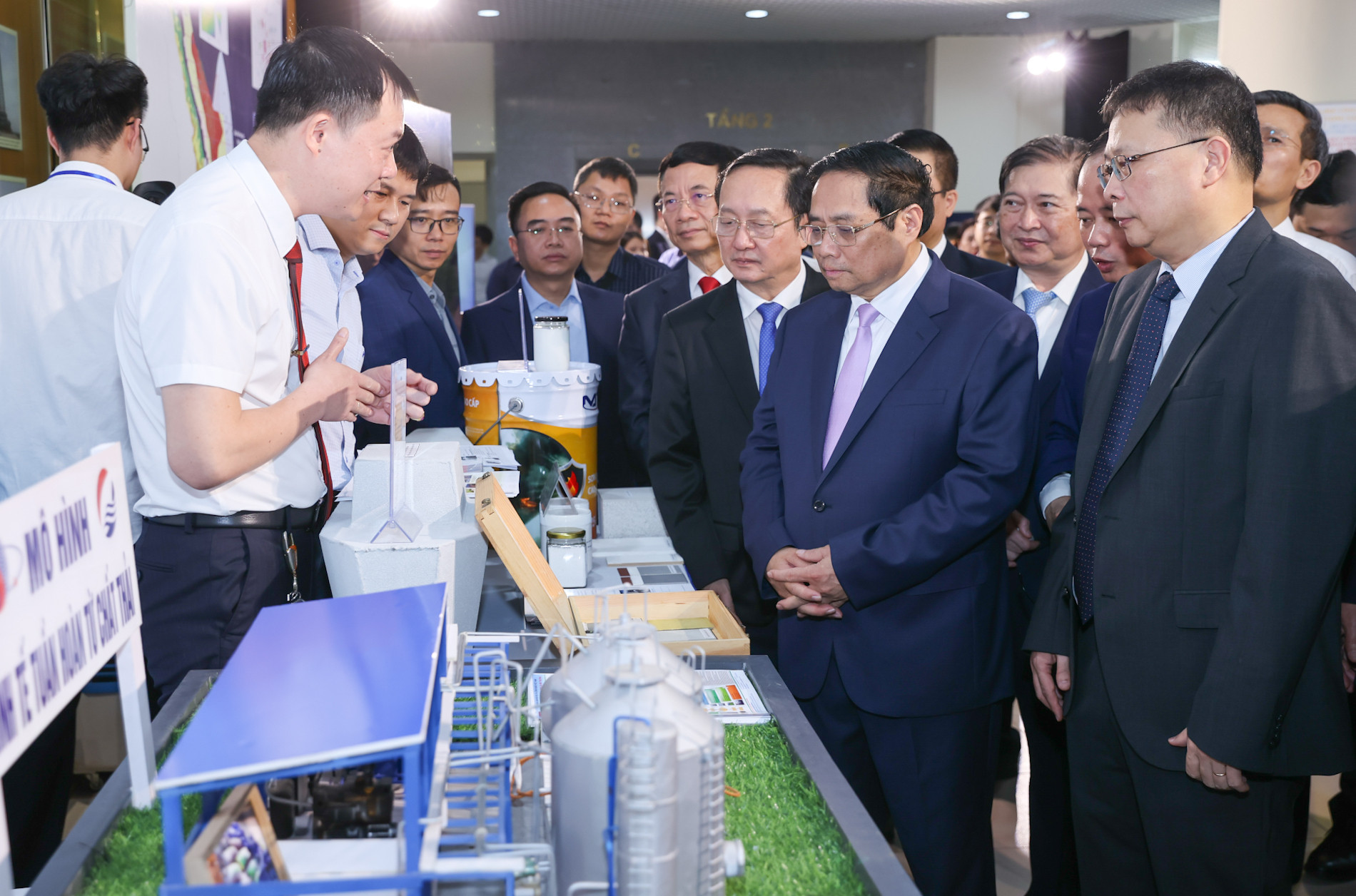
The government recently issued a resolution outlining the action program to implement Resolution 57/2024 of the Politburo, aimed at breakthroughs in science, technology, innovation, and national digital transformation. The plan details seven critical tasks, emphasizing the removal of obstacles and a shift in mindset to foster development.
Removing barriers and fostering accountability
The government calls for a transformation in thinking, strong political determination, and leadership to create a vibrant momentum for science, technology, and innovation.
Authorities at all levels are instructed to establish regulations holding leaders directly accountable for promoting innovation and digital transformation within their organizations.
Prime Minister Pham Minh Chinh, while visiting the Vietnam Academy of Science and Technology, stressed the importance of leveraging scientific advancements, such as circular economy models, to address current challenges.
To enable growth, the government highlights the need for institutional reforms that transform regulations into competitive advantages. The action plan includes:
Revising the Law on Science and Technology (2013) and related laws to create a favorable legal framework.
Simplifying administrative procedures while enhancing decentralization and state management.
Establishing special mechanisms for public and private investments in research, technology products, and digital services to accelerate national digital transformation.
The government also emphasizes policy reforms to attract investment, including tax incentives for digital product development, and support for building laboratories and research centers.
Strategic focus areas
By 2030, the government aims to implement at least five major projects in semiconductors, artificial intelligence, smart factories, smart cities, and digital technologies. This includes fostering industries like the Internet of Things (IoT) and developing specialized industrial parks for IoT.
Investment in human resources is another priority, with initiatives to:
Grant scholarships and tuition waivers for students in STEM fields.
Launch programs for training cybersecurity engineers and advanced material scientists.
Expand specialized schools for natural sciences and early STEM talent identification.
The government seeks to integrate science and technology into governance, including establishing smart monitoring and operational centers to enhance administrative efficiency. Plans also include providing every citizen with digital identities, digital tools, and digital skills, forming the foundation for a digital citizenship model.
To advance innovation, the government aims to attract leading global tech firms to establish headquarters, research centers, and production facilities in Vietnam. Incentives will target industries prioritized by the country, requiring investments in local supply chains and research and development facilities.
Vietnam plans to deepen international cooperation in science, technology, and digital transformation. Key initiatives include:
Engaging in multilateral and bilateral partnerships with countries and organizations excelling in technology and innovation.
Actively participating in international standardization bodies and fostering Vietnamese experts to take leadership roles in these organizations.
Thu Hang